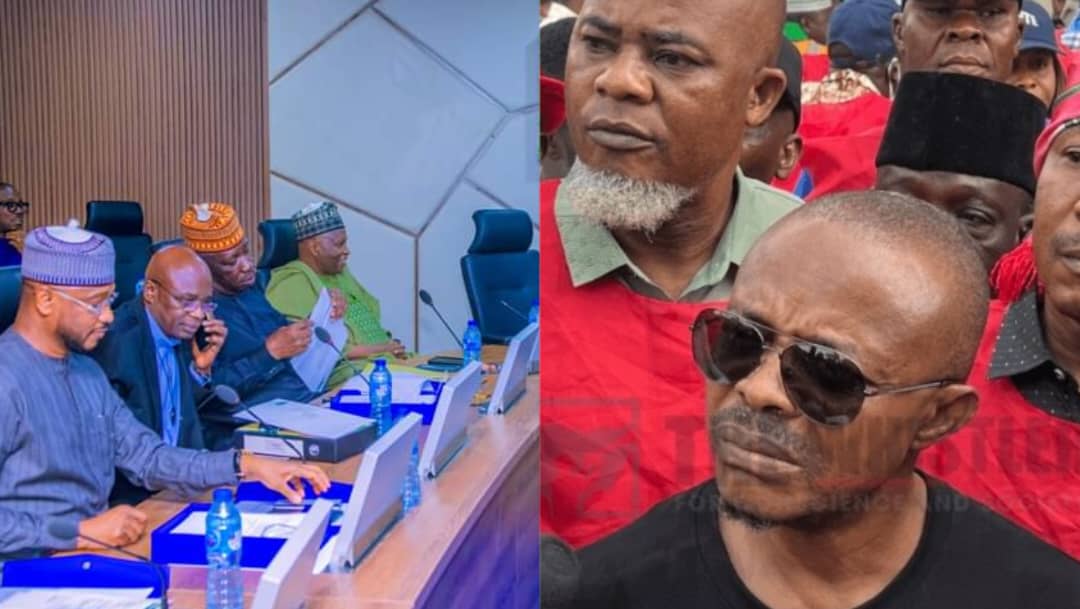The National Labour Congress (NLC) has declared the governors’ interference in the national minimum wage negotiation unconstitutional.
Benson Upah, the NLC’s head of information and public affairs, stated this during an interview on Arise Television on Monday.
Upah emphasized the NLC’s strong opposition to governors influencing the minimum wage determination process.
He explained, “The process for determining a national minimum wage involves three parties: labour, employers, and the government, which also acts as an employer. Governors have been part of this process, and for some to now want to withdraw from the national team is detrimental to the process and a betrayal, as they have been part of the government team. They do not have the constitutional right to hijack it.”
Upah highlighted that the key issues in the negotiation are “prioritisation and political will.”
He noted that Nigeria has followed this process since 1961 and described the governors’ attempt to take over the negotiation as “completely irrational.”
He warned that placing labour on the concurrent list could lead to multiple laws, complicating the legal landscape for investors.
“Labour was put on the exclusive list to ensure uniformity in labour law administration, making it easier for investors who would otherwise face multiple laws when dealing with labour issues,” he said.
Upah also pointed out potential socioeconomic consequences if states were allowed to set their own minimum wages.
“If labour is put on the concurrent list, some states might pay as little as ₦5,000, reflecting a disregard for labour. This would have serious socioeconomic consequences, including issues of security, livelihood, and citizen decency,” he warned.
Upah reiterated the NLC’s commitment to its protests and the lessons learned from past negotiations.
He stated, “It is unfair to say we did not follow through with our protests. The NLC has trusted our leaders in this country, but that trust was misplaced, and we’re learning our lessons today. We trusted the administration and returned to the negotiation table at that time.”
In response to the federal government’s warning that a high minimum wage could lead to mass retrenchments in both the civil service and private sector, Upah dismissed this as “blackmail.”
“We responded by saying it is an act of blackmail. We provided statistical data showing that the funds shared at FAC increased from ₦700 billion to ₦1.2 trillion. The issue is prioritisation and political will. Labour is being reasonable, not difficult. Creating communities of the working poor has serious consequences,” Upah said.
He criticized the governors pushing to change the minimum wage negotiation process, calling them a “vocal minority” acting in bad faith. “Governors driving this agenda should come off their high horse. They are a vocal minority, and we know the arrowhead,” he concluded.
